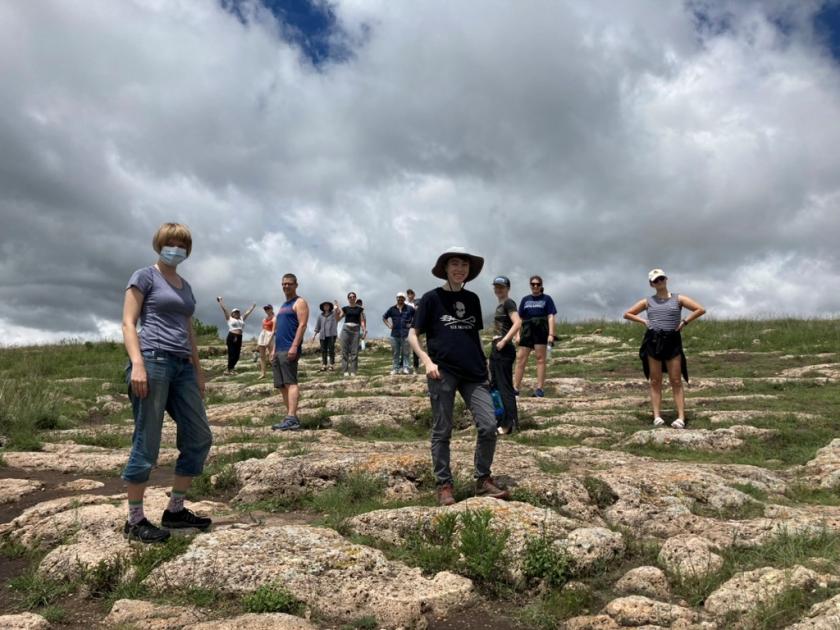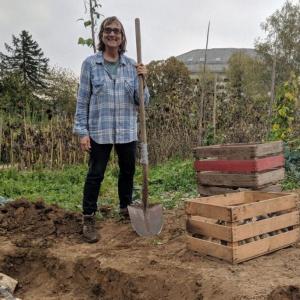Course Details
Syllabus
Program dates
-
Travel dates
-
Course credits
ENVS/UEPP 437I
Total credits: 5
Maximum enrollment: 16
At WWU: F2F and online meetings Tuesdays in winter quarter 2025, asynchronous Canvas assignments
In Mexico program dates: March 22 – March 31, 2025
Program base: Querétaro (Querétaro state), altiplano at an elevation of 1,860 meters above sea level, 210 km northwest of Mexico City.
Mexico has one of the world’s most accomplished food heritages. Based in Querétaro (Guanajuato state), the program studies food heritages and business and sustainability challenges. Also: Neoliberal policy and programs and effects on business and the environment—export agriculture and groundwater extraction, fluoride and arsenic contamination, Mexican politico-economic history, land reform, and narco-corruption, and migration and organizing: community-led solutions and models. Planning is a major theme in all our study.
Program start date is Saturday, March 22 2025, however the majority of pre-trip work will be assigned during winter quarter.
Image

Program Highlights
- 5 WWU undergraduate credits
- Family homestays
- Pick-up and drop-off at León (Bajio) airport or Quéretaro airport
- All lodging and transportation, and most meals
- Querétaro city tour
- Spanish and Mexican culture
- Guanajuato city
- Sierra Gorda Ranch stay and walk along the pristeen Ayutla river, with water convergence of several rivers
- Cooking workshop
- Spanish conversation/culture classes
- Teotihuacan pyramids prehispanic city located near Mexico City, impressive ceremonial temples, including the SUN and MOON pyramids
- World-class scenic hike to a part of the Bernal monolith, the third largest in the world after the Rock of Gibraltar in Spain and the “Pan de Azúcar” Mountain in Brazil
- Round table on regional environmental issues with local government around planning approaches and tools
- Excursion to Hortalizas el Milagro
- Excursion to San Miguel de Allende, Mexico heritage site
- Study with Caminos de Agua, NAFTA and water issues
- Opportunities to participate in carbon-offsetting
- Planning activities: City planning in Quéretaro (the “crossroads” of the nation) and of Historic Monuments Zone of Quéretaro; preserving world heritage sites with “Outstanding Universal Value,” with planning also for “regularization” of informal settlements and enhancement of public spaces; colonial and indigenous planning features of Quéretaro; community planning with promotion of local heritage values, expressed through Quéretaro’s architecture, traditions, customs, and natural and built landscapes that define the identity of the city; promotion of shared modes of ownership in historic blocks as shared community spaces. Planning for vulnerable pedestrians and cyclists.
- Possible visits: Tejamanil La Cañada, Pinal de Amoles, Cuatro Palos, Jalpan de Serra (Route of flavor), Tonatico, Rancho Suelo Vivo, Living Soil Ranch, Mission of Santiago de Jalpan (one of five UNESCO-designated local temples), El Chuveje waterfalls
- Additional study: transition of semi-desert ecosystems to coniferous forest in the Sierra Gorda, Biodiversity in the Sierra Biosphere Reserve
Expectations of Participants
Activities include visits to museums and cultural sites, as well as participating in regenerative agriculture and local businesses. With or without reasonable accommodations, must be able to: walk for several hours at a time in warm weather, climb stairs, and stand for some periods.
- Estimated Walking 1-2 hours/day
- Estimated Sitting 1-2 hours/day
Limited refrigerator space available.
Students will live and study alongside people in Mexico, as such they should not expect the same amenities that they may be used to in the United States. This may include but is not limited to access to the internet (including cellular data and wifi), sanitation facilities, air conditioning, or other amenities. Students will be housed in shared rooms for this program. Please also check with your faculty director if you have questions about dietary restrictions or personal care products you hope to find in Mexico, as various foods and products available in the United States may be difficult to find.
Students must work with the WWU Disability Access Center, Wilson Library 170, (360) 650-3083, drs@wwu.edu. For service eligibility, a complete diagnostic description from a qualified professional is required. Specific accommodations or services are determined on an individual basis and are modified to meet the unique needs of the student and their academic experience. Accommodation policies and procedures are highly individualized and centered on self-advocacy, realistic self-appraisal, and student growth. Each quarter, students need to activate their approved accommodations for each class. Students choose which of their approved accommodations they want to activate for each class.
We strongly recommend that all students traveling on this Global Learning Program are fully vaccinated against COVID-19 to maximize the safety of the student cohort. Staying up to date with COVID-19 vaccines remains the most important step to protect yourself and your community.
Participants are expected to abide by all attendance policies of the program, including those for classes and excursions, and to adhere to the program schedule. Since the programs are academic in nature, parents, friends, partners, and families are not permitted on any part of the Global Learning Program. Personal travel must be outside of the course dates and not conflict with coursework or excursion schedules. Travel plans should be vetted by faculty beforehand to ensure personal plans do not interfere with meeting the learning objectives of the course.

